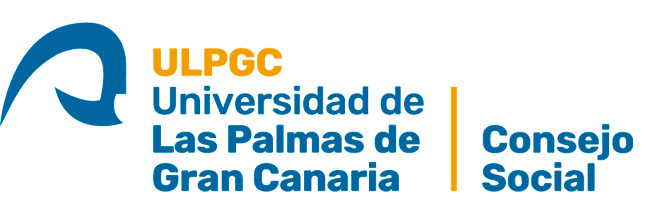The Social Council, the liaison between the University and society, will be the interface between both institutions in order to facilitate an up-to-date catalogue of lifelong learning, strategic research projects for the production system, and the inclusion of dual training at the ULPGC.
The Social Council plenary today approved the upcoming signing of a collaboration framework agreement between the ULPGC and the Confederación Canaria de Empresarios (CCE) [Canary Island Confederation of Entrepreneurs] with the aim of encouraging innovation and lifelong learning within the islands’ business world, as well as to adapt the future provision of ULPGC qualifications to the profiles most sought after by the business sector.
This agreement, promoted by the Social Council, is underpinned by three pillars of action which are currently of particular interest to the business sector and the University, as both need to find channels for ongoing collaboration so that they can, over the next few years, boost competitivity and innovation in the Canary Islands’ production system as a strategic element. Therefore, the educational component of the agreement envisions the possibility of creating a catalogue of their courses and qualifications, at the request of the business organisation, which will favour the improvement of graduates’ knowledge. Another new change they wish to introduce is to promote the inclusion of dual training at the ULPGC: that part of the learning-teaching process of university studies takes place in a business environment, coordinated alternately by the University and the business and with placements of different durations.
The chairman of the Social Council, Jesús León Lima, told the plenary that “the main driving force of economic and social development within a region is the talent of its human resources and the University is becoming an essential instrument in the training of said talent ”. The agreement that the Social Council will sign with the CCE therefore also champions inspiring innovation in business, overseeing the permanent interface between businesses and the University with the aim of ULPGC researchers and scientists becoming the mainstay of business innovation. León Lima highlighted that, in this respect, “there should be a very direct relationship between businesses – the stakeholders which have and organise talent – and the University, which has the task of training said talent”. In this way the aim is to promote the transfer of scientific knowledge to businesses, stimulating research of strategic interest for the productive sector in undergraduate dissertations as well as in those at masters level or doctoral theses.
The agreement will also pay particular attention to the employability of ULPGC graduates, improving their work placements and bringing students and lecturers closer to different companies. This is with the aim of identifying those educational profiles which are currently most in demand, meeting the new market trends in key areas such as digitalisation, sustainable development, and entrepreneurship, among others.
The chairman of the Social Council, Jesús León, highlighted the important role of the Social Council within this agreement. “We will establish ourselves as the linchpin of this mutual and ongoing collaboration” which primarily aims to strengthen the transfer of knowledge to businesses and to adapt theoretical training to the demands of the productive system “in order to relaunch the Canary Island business sector, providing it with qualified experts and with innovative projects which enable international competitivity”.
ULPGC Social Council Activities Report
During the same plenary session, held on Tuesday, the ULPGC Social Council Activities Report was also approved for 2020, a year which was particularly unusual due to the pandemic. Consequently this was a year that stood out for the substantial amendments to some planned initiatives but did, however, prove the Social Council’s extraordinary ability to respond in order to tackle unexpected academic and university management issues and make decisions regarding them, as well as launching new and revolutionary initiatives such as Canarias Importa [The Canary Islands are Important].
The Social Council also approved the ULPGC Internal Monitoring Department (IMD) Report concerning the 2020 financial year. Accordingly, in his report the chairman of the Social Council highlighted that the presentation of a new Audit Plan is envisaged for the next academic year, with measures for the period 2022-2024, and that changes to the IMD regulations are also planned.
Jesús León Lima concluded by reporting that the Social Council expects to resume normal proceedings for the 2021-2022 academic year after this extraordinary period influenced by the pandemic. “We want to focus on three objectives: to remain involved in the University-business relationship, launching initiatives and agreements with different bodies and institutions such as the agreement with the CCE which was presented to the plenary today; to drive the internal strengthening of this governing body and the communication of our activities to all social and economic stakeholders even more, if possible; and to help the ULPGC governing team improve university services”. In the same way, León Lima highlighted the important role that the Conferencia de Consejos Sociales de las Universidades Españolas [Conference of Social Councils of Spanish Universities] (CCS) – of which the ULPGC Social Council is a member – plays and will continue to play on a national scale. Accordingly, among other activities highlighted, he sketched out the various meetings held with political representatives, chambers of commerce, business associations, and official bodies from across the country in order to explain the position of the CCS regarding the creation of the new Spanish University System Act [Ley Orgánica del Sistema Universitario Español], “with the aim of our universities adopting some of the aspects of organisation and governance that have already been rolled out in other European university systems”.


